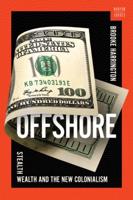Publisher's Synopsis
Common Heritage or Common Burden? contains a comprehensive and authoritative assessment of the US role in the negotiations on the UN Convention on the Law of the Sea and particularly in the negotiations on one of the remaining commons, the ocean floor beyond national jurisdiction. The author first examines the US view of the lawfulness of deep seabed mining under international law. He reviews the bureaucratic struggles, within the US Administration and the Congress, concerning the options to be pursued at the Conference; analyses the US position in the seabed negotiations from 1974 to 1980; and casts a fresh look both on the Reagan Administration's `policy review' of 1981-1982 which threatened the Conference's outcome, and current US oceans policy which remains an impediment to the Convention's early entry into force. The study suggests that despite significant compromises negotiated between the US and developing countries at the Conference up to 1980, the emerging seabed regime was not as widely endorsed by US officials as is generally assumed. Drawing on material collected from interviews with many key negotiators, the study contributes to a better understanding of domestic and international decision-making procedures and the dynamics of international negotiations.









